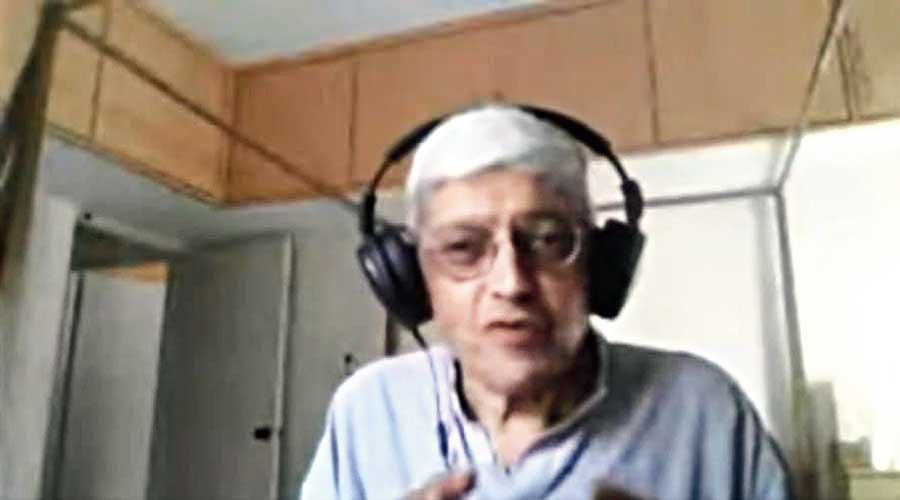On the eve of Independence Day, Mahatma Gandhi’s grandson told a group of school students “tolerance is not enough” and “real tolerance” is respecting the other person.
“Tolerance is an important word. We should respect tolerance. But tolerance is not enough. Tolerance means I am putting up with something.… Real tolerance between communities means not just tolerating but actually respecting the other person, wanting to understand what that other person is about, what that other person’s faith is about,” said Gopalkrishna Gandhi, former diplomat and governor of Bengal, now distinguished professor of history and politics at Ashoka University.
Gopalkrishna was addressing students of Indus Valley World School online on Saturday in a lecture to mark 75 years of India’s Independence.
“...we have in our country today, as we enter the 75th year, the great responsibility for mutual respect, for non-interfering in each other’s beliefs, not necessarily accepting it without scrutiny,” he said.
Gopalkrishna told the students who heard the recorded speech online that the Buddha had said not to “accept anything unquestioningly”.
“‘Examine it. And if you see it as right, then accept it... Even what I am saying, Ananda (Buddha’s disciple), don’t accept it uncritically. If you believe in it, then it is all right’,” he said, quoting the Buddha.
Gopalkrishna spoke about the freedom struggle and Mahatma Gandhi and some of his lessons. “The lesson which Gandhi taught us is that within India, we respect every community as being as important and as close to us as our own,” he said.
“We have now entered this platinum jubilee, a mature nation, mature because of our inheritance, also mature because of our experience and also because of our democracy which gives us the right to think, the right to choose in freedom.”
Gopalkrishna spoke about India’s technological progress, something that allowed him to speak to students in Calcutta from a distance.
He told the young students about the Indus Valley civilization that their school is named after. “India is a tapestry. Your school is well named after the Indus Valley, which is supposed to be the alpha of all studies of Indian civilization, the beginning, alpha. It starts with Indus Valley.”
“There are other civilizations which are even older,” he said. “So when we take pride in our civilization, we should know that other civilizations are as important, even older. But in our civilization, one of the earliest dates that we have fixed due to evidence is the Indus Valley. Indus Valley’s monumental lesson to us is in its drainage and sewage systems.”
In a pandemic-scarred world obsessed with hygiene, it is difficult to imagine a sense of hygiene 5,000 years ago. “Today, when the pandemic of virus demands that we follow essential hygiene, we learn from the Indus Valley the ABC of hygiene,” he said.
From India’s glorious past and an appeal to be appreciative of all cultures and beliefs, Gopalkrishna went on to underscore the significance of freedom. “Freedom is also the freedom to examine, to learn from our past and not to repeat our mistakes.”
The lecture was put up on the school’s official YouTube channel and social media pages and a notice was sent to all parents — of toddlers to Class XII.
“He told us that we need to cultivate mutual respect, which goes far beyond tolerance and also deal with situations with equanimity,” said Amita Prasad, director of the school. “The lecture is online and the beauty of it is one can listen to it again and again like a favourite book and each time there is a new awakening.”











